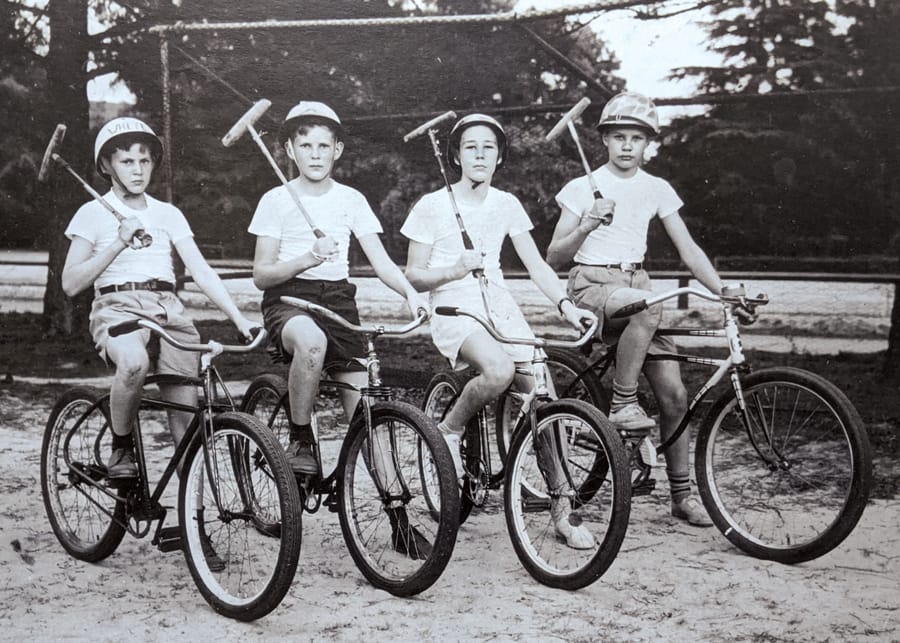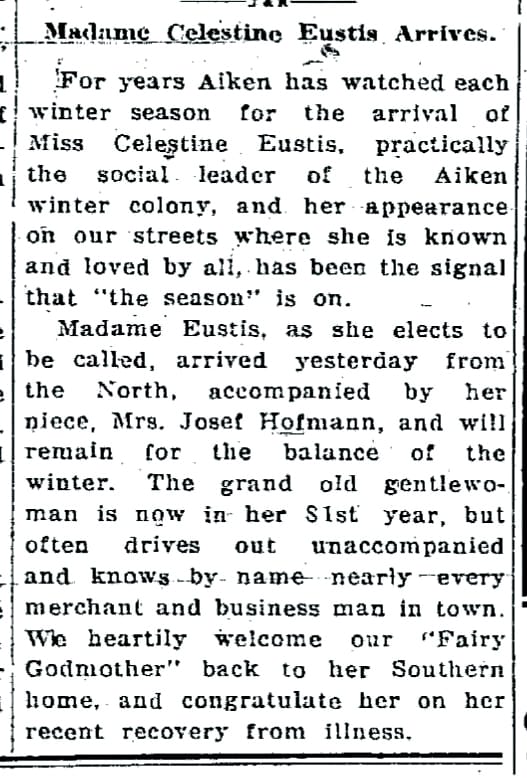The curious case of bicycle polo for Winter Colony equestrians
If you live or work in Aiken County, you most likely know of the Winter Colony. Do you know the history behind this trend of going South for the winter and how the Winter Colonists brought an unusual sport to our area? Well, you’ve come to the right place! Let us enlighten you.
In the late nineteenth century, the well-to-do set of Long Island was hearing talk of a beautiful Southern town. It had mild winters, fewer mosquitoes than the coastal areas, and fine, loamy soil that would be ideal for the hooves of their sporting horses. Among the first Northerners to discover Aiken were Louise Eustis and her beloved aunt Celestine. Celestine was charged with raising her sickly niece; she always doted on her and took special care of Louise. When Louise (often called Lulie) married her husband, Tommy Hitchcock, Sr., she shared her “home away from home” with him. When Tommy arrived in Aiken, he fell in love all over again. He could see the advantages of training horses in such fine and sandy soil, the frugality of wintering in a small town in the South, and the health benefit that his wife received from the superbly fresh pine air. All that was missing was his friends and loved ones from back home!
Re-enter Celestine Eustis
A savvy businesswoman, Madame Eustis, as she preferred to be called, saw the writing on the wall and knew that Aiken would soon be a very popular location. She began buying the property surrounding her land. She would then break it into smaller parcels and sell the tracts to friends and acquaintances as they made their way down to Aiken. As more and more people from their social circle began to winter in Aiken, the Eustis-Hitchcock family recognized the need for additional, more permanent, services. One such service was to establish a school for the children of the colonists.
In 1916,Celestine’s niece and foster daughter, Louise Eustis Hitchcock, founded the Aiken Preparatory School for her sons and the sons of fellow Winter Colonists. Known in Aiken as the Patron Saint of Polo, Louise was an incredible polo player and thus her passion for equestrian sports was promoted to the students of APS.
A horse-less sport for the equestrian focused Winter Colonists
One of the more unique athletic sports at Aiken Prep was bicycle polo. Invented in Ireland in the 1890s, bicycle polo was a way to prepare children for the equestrian sport of polo. Students learned the techniques of the game before adding the extra work of managing a horse. As one article from the time noted, bicycle polo athletes graduated from “pedals to stirrups” when they were ready for horse polo.
From the school’s early years of bicycle polo emerged some well-known names in the game of horse polo. One such was Tommie Hitchcock, Louise’s son and one of the most famous polo players in the world. Other famous Aiken names in bicycle polo and horse polo were Pete Bostwick, Skiddy von Stade, Jr., Louis Stoddard, and Charles von Stade. Bicycle polo continued as a sport at Aiken Prep into the 1970s before it was phased out. In 2004, the sport was revived at Aiken Prep by Tara Bostwick when she took over physical education at the school. In 2012, Aiken Preparatory School merged with Mead Hall Episcopal School.
Although the game is no longer offered as a sanctioned sport in Aiken schools, I’m sure it won’t surprise our readers that bicycle polo is still active in our area. In recent years, Aiken hosted the International Bicycle Polo Association’s championship tournament at the Powderhouse Polo Fields. Although it’s not a sport that we directly associate with our area’s equestrian past, bicycle polo has a long and prestigious history in our community.
We hope you enjoyed this story.
As always, stay curious!

Members of a bicycle polo team at Aiken Preparatory School, 1949.

Celestine Eustis is deemed the social leader of Aiken’s winter colony. Aiken Journal and Review, December 2, 1918.
























